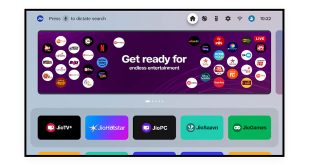WhatsApp’s decision to introduce ads marks a major shift for the world’s largest messaging app. Explore what this means for users, privacy, and the broader messaging landscape.
A Landmark Change in Messaging
After steadfastly resisting commercial advertising for over a decade, WhatsApp has announced its intention to introduce ads on its platform—a move that signals a new era for the world’s most popular messaging app and its parent company, Meta. This decision, coming in 2025, marks a significant departure from WhatsApp’s founding principles of privacy and ad-free communication, raising questions about user experience, data privacy, and the evolving business models of digital platforms.
The Announcement: What’s Changing on WhatsApp
Meta, WhatsApp’s parent company, confirmed that ads will soon appear within the app, specifically in the Updates tab—a section that houses Status updates and Channels. Notably, these ads will not intrude into private one-on-one or group chats, maintaining a degree of separation between personal conversations and commercial content.
Key Details:
- Ad Placement: Ads will be displayed in the Updates tab, not in chat threads.
- Rollout Timeline: The feature is expected to launch later in 2025, with phased rollouts across different regions.
- No Chat Ads: Meta has emphasized that private messages will remain ad-free, addressing a core user concern.
Why Now? Understanding Meta’s Strategic Shift
WhatsApp’s pivot towards advertising comes as Meta seeks new revenue streams amid slowing growth in its core social media businesses. With over two billion users globally, WhatsApp represents a vast, largely untapped audience for advertisers. Competitors such as WeChat, Line, and Messenger have long incorporated ads, making WhatsApp a notable holdout—until now.
Meta’s leadership, including CEO Mark Zuckerberg, has previously highlighted the need to monetize WhatsApp more effectively, especially as the company invests in features like Channels, business messaging, and payment integrations. The introduction of ads aligns WhatsApp with industry trends and provides Meta with additional leverage in the competitive digital advertising market.
Implications for Users: Experience, Privacy, and Control
User Experience
For everyday users, the introduction of ads is a significant change, but Meta has taken steps to minimize disruption. By limiting ads to the Updates tab, WhatsApp aims to preserve the core messaging experience that has driven its global popularity. Users who primarily use the app for direct communication may notice little difference in their daily interactions.
Privacy Considerations
WhatsApp has built its reputation on end-to-end encryption and user privacy. Meta has reiterated that ads will not compromise the privacy of chats, and no personal message content will be used for ad targeting. However, the presence of ads may prompt renewed scrutiny of WhatsApp’s data collection and usage policies.
Subscription and Monetization Options
In addition to ads, WhatsApp is reportedly exploring premium subscription models and enhanced features for business users. These may include advanced analytics, expanded channel capabilities, and additional customization options for brands.
Industry Context: How WhatsApp Compares to Other Messaging Platforms
WhatsApp’s move mirrors a broader industry trend where messaging platforms diversify their revenue streams beyond traditional advertising. Apps like WeChat and Line have successfully integrated ads, e-commerce, and payment services, creating multifaceted digital ecosystems. By introducing ads, WhatsApp is positioning itself to compete more directly with these platforms, especially in markets where messaging apps serve as primary gateways to digital services.
Reactions: Community and Expert Perspectives
The announcement has generated mixed reactions among users, privacy advocates, and industry analysts. Some users express concern about the potential for increased commercialization and data tracking, while others acknowledge the inevitability of ads in sustaining free digital services. Experts note that WhatsApp’s careful approach—keeping ads out of private chats—may help mitigate backlash, but ongoing transparency and user control will be critical to maintaining trust.
What’s Next: Future Developments and User Guidance
As WhatsApp prepares to roll out ads, users can expect incremental updates and new features aimed at balancing monetization with user satisfaction. Meta is likely to monitor feedback closely and adjust its strategy as needed, given the high stakes involved in altering the experience of a platform used by billions.
Tips for Users:
- Stay Informed: Watch for official updates and privacy policy changes within the app.
- Manage Notifications: Adjust notification settings to control ad-related alerts in the Updates tab.
- Explore Alternatives: Users uncomfortable with ads may consider alternative messaging apps, though most major platforms now incorporate some form of advertising.
Conclusion: A New Chapter for WhatsApp and Digital Messaging
WhatsApp’s decision to introduce ads represents a pivotal moment in the evolution of messaging apps and digital communication. While the move brings new opportunities for brands and Meta’s business ambitions, it also challenges WhatsApp to uphold its longstanding commitment to privacy and user-centric design. As the rollout unfolds, the balance between monetization and user trust will define WhatsApp’s trajectory in the years ahead.
 Digital Tech Byte Latest Technology News
Digital Tech Byte Latest Technology News





